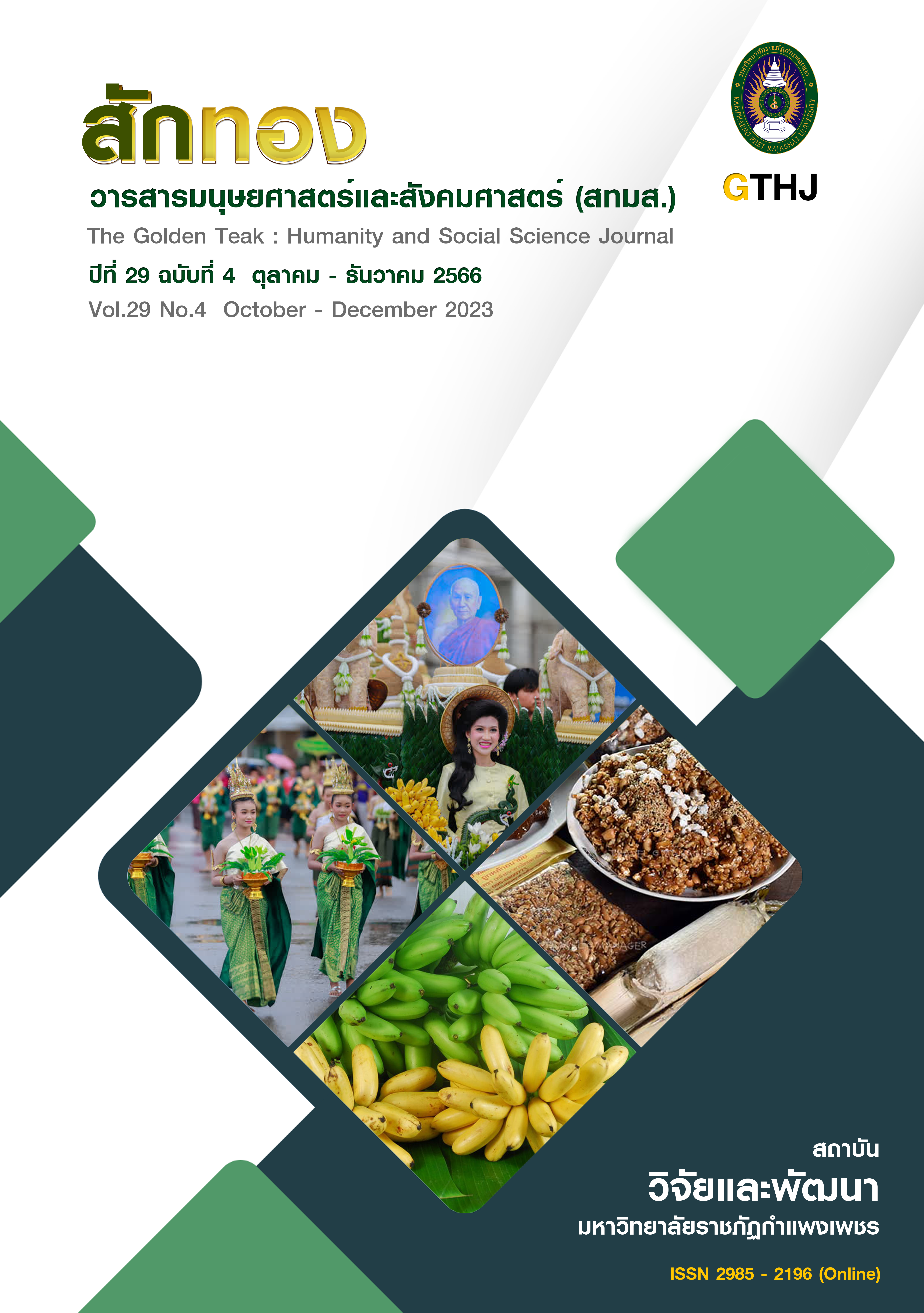Using Experiential Learning Approach and Mathematical Tasks to Enhance Mathematical Connection Ability of Grade 9 Students in Similarity
Main Article Content
Abstract
The objectives of this research were 1) study how to teach by using an experiential learning approach and mathematical tasks and 2) examine mathematical connection ability in the similarity concepts. The target group of this research was 40 students grade ninth. The research method used three cycles of operational research using the concept of Kemmis & McTaggart (1998) and research instruments were lesson plans, reflective journals, a test, and worksheets. Data is collected by test and observation. Content analysis was used to content analyze, and method triangulation was used for data credibility. Presentation of content analyzes by analytic description. The findings showed that 1) teaching must choose life situations that are powerfully related to students' direct experience; use a wide range of tasks, e.g., practicable works and prior knowledge review; and probe what students learn by asking questions continuously. Also, the results showed that 2) the students had the highest progression in relating the concepts to daily life situations. Consequently, they related the concepts to other mathematical concepts and other subjects.
Article Details

This work is licensed under a Creative Commons Attribution-NonCommercial-NoDerivatives 4.0 International License.
บทความที่ได้รับการตีพิมพ์เป็นลิขสิทธิ์ของวารสาร สักทอง : วารสารมนุษยศาสตร์และสังคมศาสตร์ สถาบันวิจัยและพัฒนา มหาวิทยาลับราชภัฏกำแพงเพชร
ข้อคิดเห็นใดๆ ที่ปรากฎในวารสารเป็นวรรณกรรมของผู้เขียนโดยเฉพาะ ซึ่งมหาวิทยาลัยราชภัฏกำแพงเพชรและบรรณาธิการไม่จำเป็นต้องเห็นด้วย
References
Angganapattarakajorn, W. (2012) Complete knowledge for math teachers curriculum teaching and research. Bangkok : Charansanitwong. [In Thai]
Cai, J. & Lester, F. (2010). Why is teaching with problem solving important to student learning?. VA: National Council of Teachers of Mathematics.
Keawam, R. (2017). Developing of Learning activities focusing on Mathematical connection use Problem-Based Learning for grad 9 students. Journal of Education, Naresuan University, 19(4), 214-222. [In Thai]
Kemmis, S. & McTaggart, R. (1988). The Action Research Planner. (3 rd ed.). Geelong. Australia : Deakin University Press.
Khammani, T. (2013). Teaching science: Knowledge for effective learning process. (17 th ed.). Bangkok : Chulalongkorn University Printing. [In Thai]
Kolb, A. (1991). Organizational behavior: An Experiential Approach. (5 th ed.). U.S.A : Prentice-Hall.
Isoda, M. (2012). Mathematical thinking: How to develop it in the classroom. Singapore : World Scientific.
Makanong, A. (2010). Mathematical skills and processes: Development for development. Bangkok : Chulalongkorn University. [In Thai]
Mueangkhot, W. (2017). Promoting mathematical problem-solving abilities of grade 7 students by using mathematical tasks. Master's thesis Education, Chiang Mai University. [In Thai]
Phuphiw, N. (2020). Using Resource-Based learning approach to develop the 7th grade students' mathematical connection skills in statistics. Journal of Graduate Studies Valaya Alongkorn Rajabhat University, 15(1), 78-91. [In Thai]
Silver, C. A. (2000). Where technology and knowledge meet. The Journal of Business Strategy, 21(6), 28-33. [In Thai]
Thailand PISA Project and The Institute for the Promotion of Teaching Science and Technology. (2018). PISA Assessment Results 2018 Reading, Mathematics and Science. [Online]. Available : https://pisathailand.ipst.ac.th/ pisa2018-fullreport/ [2021, July 17]. [In Thai]
The Institute for the Promotion of Teaching Science and Technology. (2012). Professional math teacher way to success. Bangkok : 3Q Media. [In Thai]


